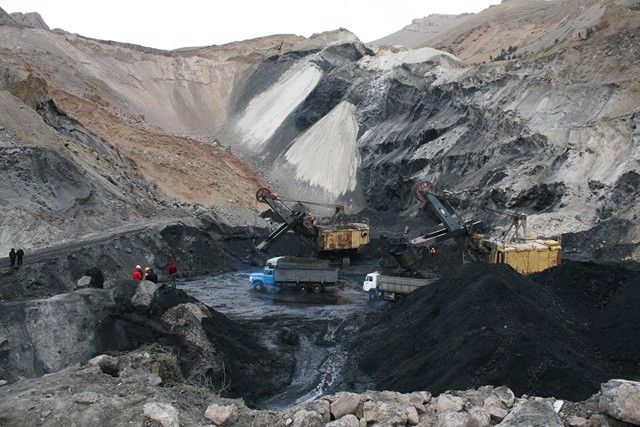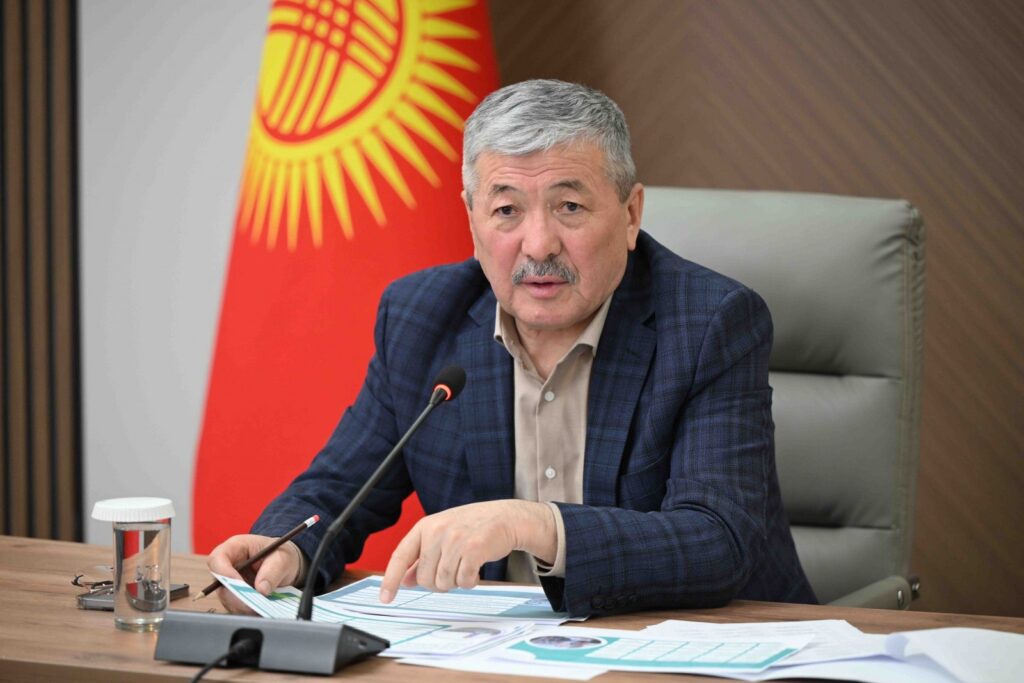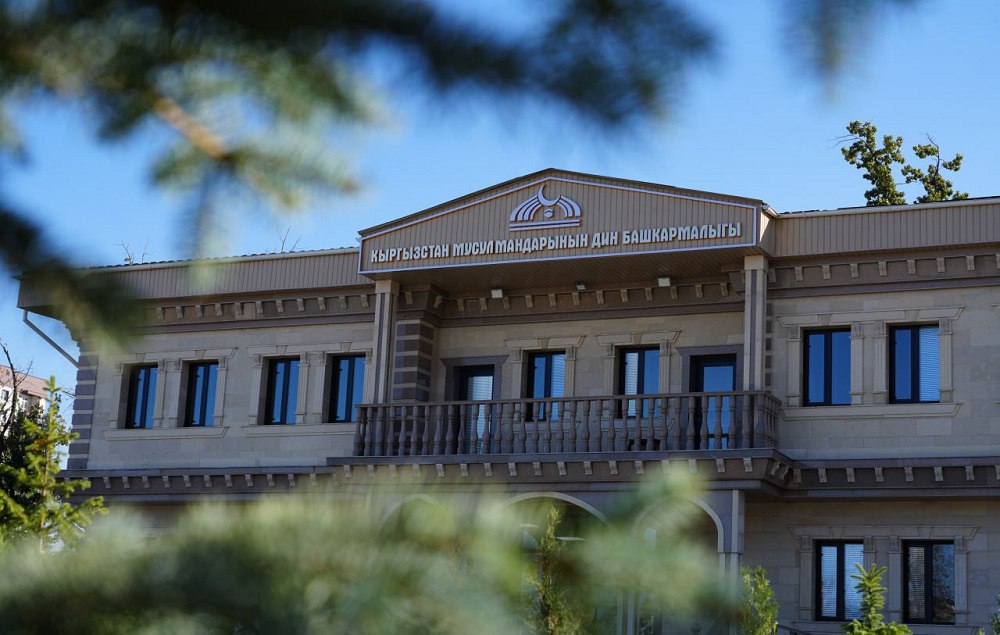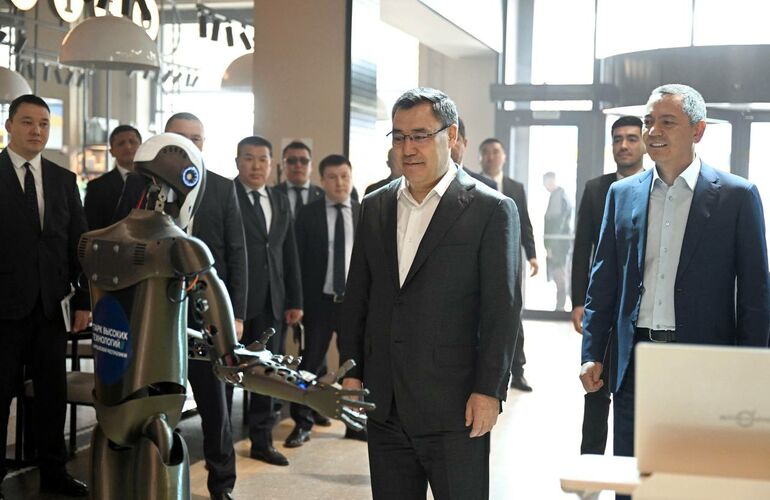BISHKEK (TCA) — The State Property Management Fund under the Government of the Kyrgyz Republic (SPMF) intends to reduce part of the non-operating enterprises with the state share by uniting them into a National Holding open joint-stock company.
SOEs income decreasing
The work of the board of directors of state-owned enterprises (SOEs) is not effective, SPMF Chairman Bolsunbek Kazakov said at a parliamentary meeting to consider the creation of the National Holding on May 12.
Incomes of SOEs are decreasing, from 2.2 billion soms in 2012 to 901 million soms in 2016, Kazakov said. Their revenues were spent to cover administrative expenses and pay wages, and their staff is unreasonably big.
Low profitability is due to the fact that SOEs incur large expenses, both operational and non-operational. At the same time, these enterprises have buildings and land that could be effectively used to improve profitability.
According to Kazakov, 1,130 state-owned enterprises are registered in Kyrgyzstan, 166 are operating regularly receiving subsidies from the state, and only five or six enterprises are operating efficiently. There are 68 joint-stock companies registered with the SPMF participation, and 38 of them are operating while the rest are on the verge of liquidation and bankruptcy. Many SOEs are included in the structure of the relevant ministries, which appoint JSC heads.
The Government intends to withdraw joint-stock companies from the structure of ministries and transfer them to the National Holding. For instance, the National Energy Holding, established two years ago, works efficiently, and there is a certainty that enterprises under the new National Holding will also become profitable, Kazakov concluded.
Development prospects
Deputy Economy Minister Eldar Abakirov told MPs about state-owned enterprises which have good development prospects. Kyrgyz Temir Jolu (Kyrgyz Railways State Company), InfoCom, Air Navigation, and Kyrgyzkomur (Coal Mining State Company) brought revenues to the state budget.
It is necessary to privatize those SOEs whose main goal is to make profit while enterprises in the sphere of transport, logistics and economy, including Kyrgyz Temir Jolu and Kyrgyztelecom, should be on the state balance sheet, he said.
The Kyrgyz Temir Jolu will continue operating in the current state ownership but the issue of its further effectiveness will be considered later, and all non-core objects will be removed from its structure. Only the passenger and cargo transportation, as well as the maintenance and repair of cars, diesel locomotives and railway tracks will remain in the competence of the company.
MPs opinion
The Parliament deputies reacted critically to the creation of the new Holding. Firstly, it is necessary to draft a development program for the state-owned enterprises. “For many years we have been talking about what has to be done, but there are no positive results. In addition, the SOEs have not yet been evaluated. It is necessary to capitalize them and raise their price,” MP Osmonbek Artykbaev said.
The SOEs are poorly managed because the SPMF appoints their heads, MP Anvar Artykov believes. “If unscrupulous managers squander property, what kind of income can be talked about?” he asked.
According to leader of the pro-presidential Social Democratic Party of Kyrgyzstan (SDPK) faction Isa Omurkulov, in recent decades the state enterprises have been plundered and left with debts, but work on inventorying of the state property has begun recently.
Is there such a phenomenon elsewhere in the world when a country, having over a thousand SOEs with boards of directors and audit committees, gets as little as 488 million soms ($7.2 million) of income from them? he asked.
The creation of the National Holding is a good idea, but who will regulate its activities, the SPMF or Economy Ministry? The Economy Ministry deals with SOEs liquidation and bankruptcy, but not with their development. If this goes on, the state would lose the profitable companies too, Omurkulov concluded.
Kyrgyzstan’s SOEs are ruled by relatives of officials and thieves, MP Anvar Artykov said as cited by 24.kg information agency. “First, you appoint your relatives and thieves to the board of directors, and then try to restore order,” Artykov told the SPMF head during a dispute over the low qualifications of the SOE managers.
The state should develop a special program for managing state property on the principle of trust management and to attract professionals who will defend the interests of the state. Many states have gone through this and achieved good results, he added.
In Soviet times, two cities, Tokmok and Kara-Balta, raised the economy of the Chui oblast, MP Ryskeldi Mombekov said.
Large profitable enterprises such as the brewery and distillery plants and carpet factory successfully worked in Kara-Balta and meat processing plant and worsted cloth factory worked in Tokmok. All of them do not work now as a result of the state property reform. Optimization of state enterprises was followed by liquidation, bankruptcy and then privatization.
Before eliminating the boards of directors, the Government should begin from itself, improving its own management.
“A transport professional heads the State Customs Committee, a customs officer heads the State Security Inspection, and a miller heads Kyrgyzneftegaz oil and gas company. This is not government management but a pocket management,” concluded Mombekov as quoted by the local news agencies.
China is among countries with the most effective state administration, and the MPs advised the SPMF to study the Chinese experience.









